The historic decision to pass the Women’s Reservation Bill was taken by the Union Cabinet yesterday, during the Special Session of the Parliament.
The Union Cabinet has finally cleared the Women’s Reservation Bill on Monday, the first day of the Special Session of the Parliament. After being pending for 27 years, the PM Narendra Modi-led cabinet took the historic decision to pass the bill, set to change the course of history.
The decision to clear the bill is historic in a very prominent sense, increasing the presence of women in the democratic decision-making process of the government and the Parliament. This bill means that there will be a larger presence of women in the Parliament than the country has ever seen.
Under the Women’s Reservation Bill, there will be a 33 percent reservation of seats in the Lok Sabha for women, increasing their presence in the country. While BJP and Congress have always been in support of the bill, many Opposition parties have resisted the clearing of the bill.
Majority of the state assemblies across the country have less than 10 percent of women representation, while only 15 percent of the Lok Sabha strength consists of women MPs. 78 women members were elected in the Lok Sabha, which account for less than 15 per cent of the total strength of 543.
Similarly in the Rajya Sabha, the strength of women is just 14 percent, as quoted by the data shared by the Parliament last year. The same applies to a large number of state assemblies in India, which see less than 10 percent of female representation.
State assemblies such as Andhra Pradesh, Arunachal Pradesh, Assam, Goa, Gujarat, Himachal Pradesh, Karnataka, Kerala, Madhya Pradesh, Maharashtra, Manipur, Meghalaya, Odisha, Sikkim, Tamil Nadu, Telangana, Tripura and Puducherry have less than 10 percent women representation.
The clearing of this bill is set to change the course of history as it will now mandate 33 percent reservation for women in the Lok Sabha as well as the state assemblies, with one third of the seats reserved for women belonging to Scheduled Castes of Scheduled Tribes, a move which has not yet been taken before.
READ | Special session in new Parliament building today; Speaker Birla asks MPs to abstain from organised disruptions
![submenu-img]() Meet actress, Dilip Kumar, Amitabh's heroine who slapped Sanjeev Kumar, filed case against her mom, is related to...
Meet actress, Dilip Kumar, Amitabh's heroine who slapped Sanjeev Kumar, filed case against her mom, is related to...![submenu-img]() IND vs BAN, 1st T20I Dream11 prediction: Fantasy cricket tips for India vs Bangladesh
IND vs BAN, 1st T20I Dream11 prediction: Fantasy cricket tips for India vs Bangladesh![submenu-img]() Zomato CEO Deepinder Goyal reveals he was ‘kicked out’ of Shark Tank India season 4 by…
Zomato CEO Deepinder Goyal reveals he was ‘kicked out’ of Shark Tank India season 4 by…![submenu-img]() Harsh Goenka shares three lessons for success he learnt from Mukesh Ambani, says, 'I have always...'
Harsh Goenka shares three lessons for success he learnt from Mukesh Ambani, says, 'I have always...'![submenu-img]() Nagarjuna Akkineni in trouble? Complaint filed against Telugu star over Hyderabad's Convention centre
Nagarjuna Akkineni in trouble? Complaint filed against Telugu star over Hyderabad's Convention centre![submenu-img]() Poll of Polls: जम्मू-कश्मीर में कांग्रेस-NC बहुमत के करीब, हरियाणा में BJP पस्त, जानें क्या कहते हैं Exit पोल्स?
Poll of Polls: जम्मू-कश्मीर में कांग्रेस-NC बहुमत के करीब, हरियाणा में BJP पस्त, जानें क्या कहते हैं Exit पोल्स?![submenu-img]() IND vs BAN: बांग्लादेश के खिलाफ टी20 सीरीज से शिवम दुबे हुए बाहर, BCCI ने इस खिलाड़ी को दिया मौका
IND vs BAN: बांग्लादेश के खिलाफ टी20 सीरीज से शिवम दुबे हुए बाहर, BCCI ने इस खिलाड़ी को दिया मौका![submenu-img]() WhatsApp में Facebook जैसा फीचर, अब स्टेट्स में Tag कर पाएंगे अपने 'खास' को, जानें कैसे होगा यूज
WhatsApp में Facebook जैसा फीचर, अब स्टेट्स में Tag कर पाएंगे अपने 'खास' को, जानें कैसे होगा यूज![submenu-img]() Jabalpur Hotel Blast: जबलपुर के होटल में बड़ा ब्लास्ट, गैस लाइन की टेस्टिंग में हुआ हादसा, एक महिला की मौत, 8 घायल
Jabalpur Hotel Blast: जबलपुर के होटल में बड़ा ब्लास्ट, गैस लाइन की टेस्टिंग में हुआ हादसा, एक महिला की मौत, 8 घायल![submenu-img]() Haryana Election Exit Poll Results 2024: हरियाणा में हर सर्वे दिखा रहा का�ंग्रेस 'सरकार', जानें एग्जिट पोल्स में कितना पिछड़ी BJP
Haryana Election Exit Poll Results 2024: हरियाणा में हर सर्वे दिखा रहा का�ंग्रेस 'सरकार', जानें एग्जिट पोल्स में कितना पिछड़ी BJP![submenu-img]() This company overtakes Ratan Tata's firm to become India’s…; it is owned by…
This company overtakes Ratan Tata's firm to become India’s…; it is owned by…![submenu-img]() Mahindra Thar ROXX booking to start from..., check waiting period, details
Mahindra Thar ROXX booking to start from..., check waiting period, details![submenu-img]() BMW launches CE 02 electric scooter in India; price starts at Rs…
BMW launches CE 02 electric scooter in India; price starts at Rs…![submenu-img]() Mahindra Thar Roxx 4x4 prices revealed, starts at Rs…
Mahindra Thar Roxx 4x4 prices revealed, starts at Rs…![submenu-img]() Sebi gives nod to Hyundai India's Rs 20,000 crore IPO, listing month is...
Sebi gives nod to Hyundai India's Rs 20,000 crore IPO, listing month is...![submenu-img]() Meet woman, who failed in four UPSC prelims, missed interview, got panic attack, then finally became...
Meet woman, who failed in four UPSC prelims, missed interview, got panic attack, then finally became...![submenu-img]() Meet IIT graduate, who didn't settle for IPS posting, cracked UPSC exam twice to become...
Meet IIT graduate, who didn't settle for IPS posting, cracked UPSC exam twice to become...![submenu-img]() Meet IIT-JEE topper with 355 marks in JEE Advanced, whose father works at Mukesh Ambani's Reliance Jio, aims to join..
Meet IIT-JEE topper with 355 marks in JEE Advanced, whose father works at Mukesh Ambani's Reliance Jio, aims to join..![submenu-img]() Meet woman who begged in childhood, became doctor after 20 years of struggle, now she is...
Meet woman who begged in childhood, became doctor after 20 years of struggle, now she is...![submenu-img]() Meet man, who left govt job as Assistant Excise Officer, used to get Rs 50000000, now works as...
Meet man, who left govt job as Assistant Excise Officer, used to get Rs 50000000, now works as...![submenu-img]() After Hassan Nasrallah's Death, This Cleric Is Now Tipped To Be Hezbollah Leader | Israel | Lebanon
After Hassan Nasrallah's Death, This Cleric Is Now Tipped To Be Hezbollah Leader | Israel | Lebanon![submenu-img]() Hashem Safieddine, Cousin Of Hassan Nasrallah To Become Hezbollah's New Chief | Israel-Lebanon War
Hashem Safieddine, Cousin Of Hassan Nasrallah To Become Hezbollah's New Chief | Israel-Lebanon War![submenu-img]() Israel Hezbollah War: Nasrallah's Death, A Turning Point for Hezbollah's Future? Experts Explain
Israel Hezbollah War: Nasrallah's Death, A Turning Point for Hezbollah's Future? Experts Explain![submenu-img]() Israel Hezbollah War: Hassan Nasrallah's Death Leads To Protests In J&K, Ex-CM Mehbooba Mufti Reacts
Israel Hezbollah War: Hassan Nasrallah's Death Leads To Protests In J&K, Ex-CM Mehbooba Mufti Reacts![submenu-img]() Israel Hezbollah War: Nasrallah's Death Leads To Protest By Women & Children In Jammu And Kashmir
Israel Hezbollah War: Nasrallah's Death Leads To Protest By Women & Children In Jammu And Kashmir![submenu-img]() BIG boost for Mukesh Ambani's Jio Financial Services, to challenge ICICI, SBI bank as his company gets SEBI nod for...
BIG boost for Mukesh Ambani's Jio Financial Services, to challenge ICICI, SBI bank as his company gets SEBI nod for...![submenu-img]() Anil Ambani-led company's total debt stands at Rs 40413 crore but...
Anil Ambani-led company's total debt stands at Rs 40413 crore but...![submenu-img]() These siblings overtake Gautam Adani in billionaires list, combined net worth more than Elon Musk, they are…
These siblings overtake Gautam Adani in billionaires list, combined net worth more than Elon Musk, they are…![submenu-img]() Meet wife of famous Indian cricketer, who cracked CS exam, now earns crores by selling cakes, her net worth is...
Meet wife of famous Indian cricketer, who cracked CS exam, now earns crores by selling cakes, her net worth is...![submenu-img]() Success story in every spray: How Toxic Male Perfume captured India's heart and market
Success story in every spray: How Toxic Male Perfume captured India's heart and market![submenu-img]() 10 Aabha Paul photos and videos that rule Instagram
10 Aabha Paul photos and videos that rule Instagram![submenu-img]() India’s most expensive cars and their owners
India’s most expensive cars and their owners![submenu-img]() Who is IIT professor Chetan Solanki aka 'Solar Gandhi'who went viral for his torn socks?
Who is IIT professor Chetan Solanki aka 'Solar Gandhi'who went viral for his torn socks?![submenu-img]() Bigg Boss 18: Step into cave-hotel themed BB house with 107 cameras, luxurious bathroom, scary jail, spacious bedroom
Bigg Boss 18: Step into cave-hotel themed BB house with 107 cameras, luxurious bathroom, scary jail, spacious bedroom![submenu-img]() All about Anupama Parameswaran, who played simpleton in debut film, became famous for bold scenes, dated..
All about Anupama Parameswaran, who played simpleton in debut film, became famous for bold scenes, dated..![submenu-img]() J-K Elections 2024: Exit polls give edge to Congress-NC alliance, BJP likely to win…
J-K Elections 2024: Exit polls give edge to Congress-NC alliance, BJP likely to win…![submenu-img]() Haryana Exit Poll Results 2024: Pollsters predict major win for Congress, setback for BJP
Haryana Exit Poll Results 2024: Pollsters predict major win for Congress, setback for BJP![submenu-img]() Former cricketer and actor Salil Ankola's mother found dead, police say injury...
Former cricketer and actor Salil Ankola's mother found dead, police say injury...![submenu-img]() NCRTC kicks off trial runs of Namo Bharat trains on Sahibabad-New Ashok Nagar route: Check speed, timings and distance
NCRTC kicks off trial runs of Namo Bharat trains on Sahibabad-New Ashok Nagar route: Check speed, timings and distance![submenu-img]() 'Gave up arms, adopted Gandhian way of...': Separatist Yasin Malik in court
'Gave up arms, adopted Gandhian way of...': Separatist Yasin Malik in court










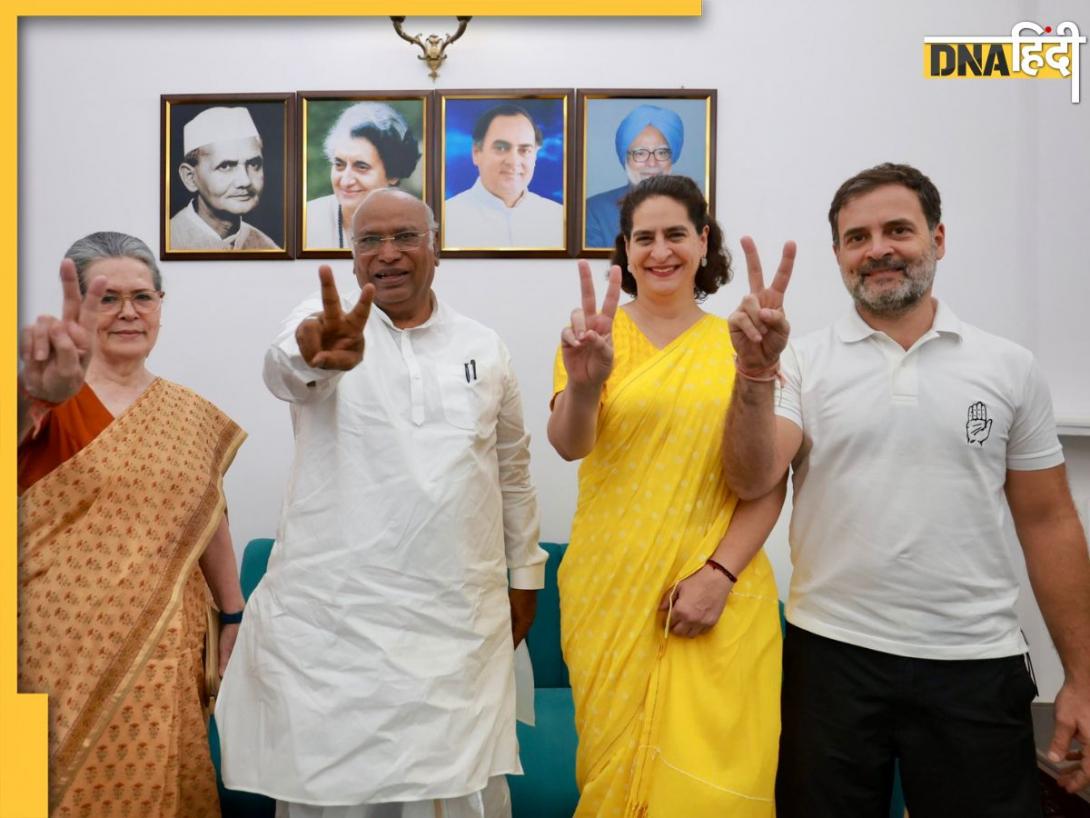










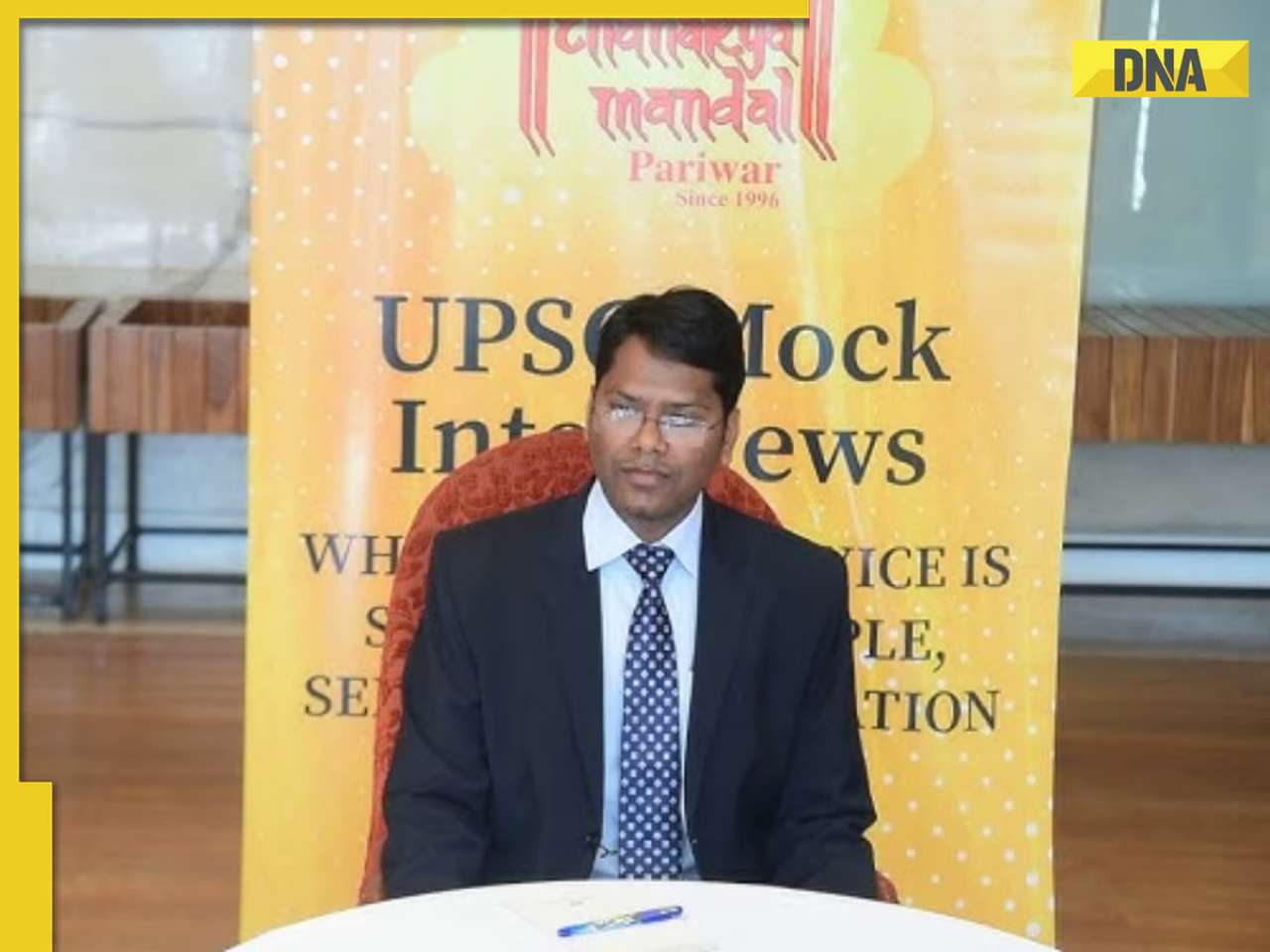









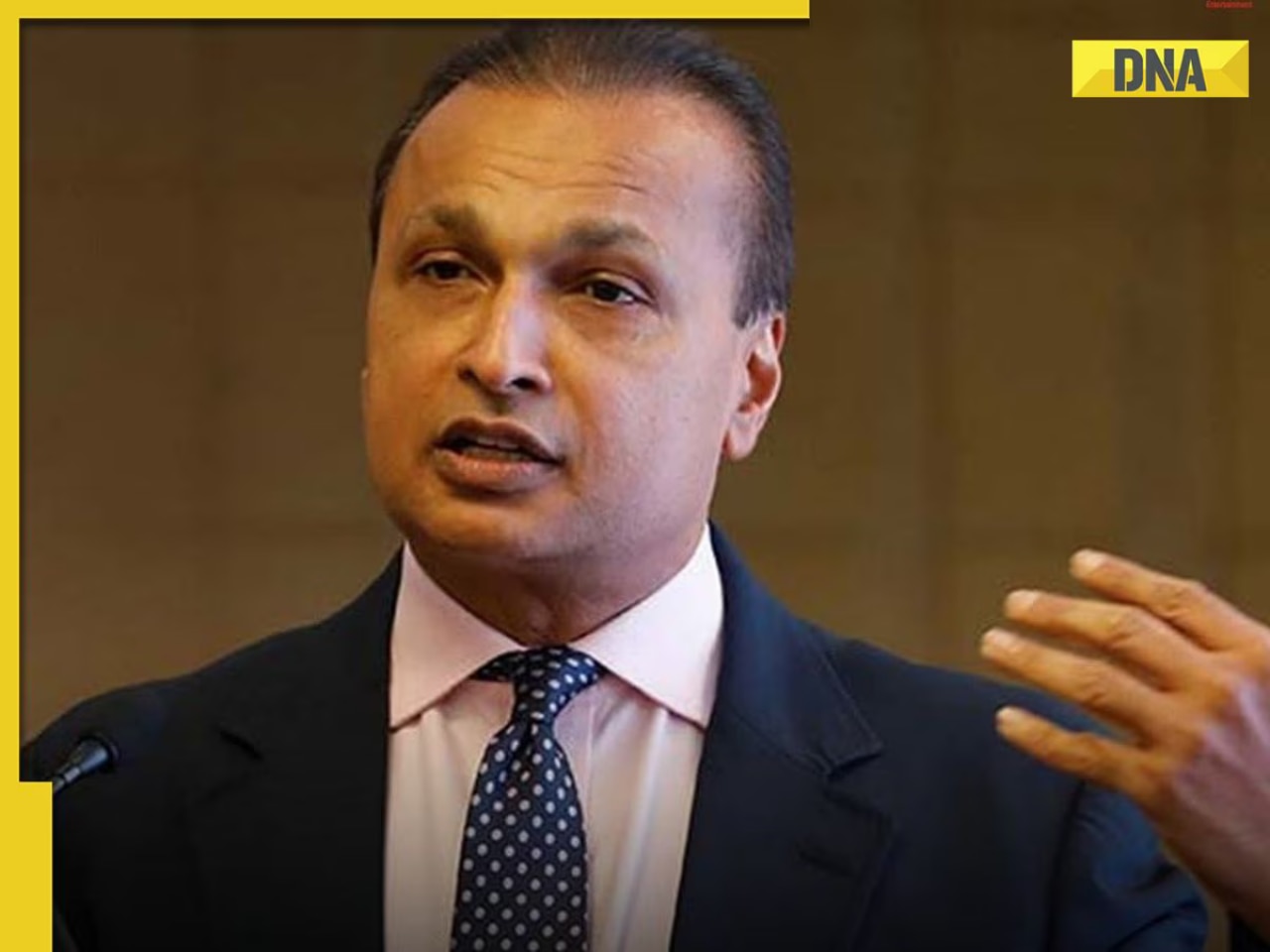








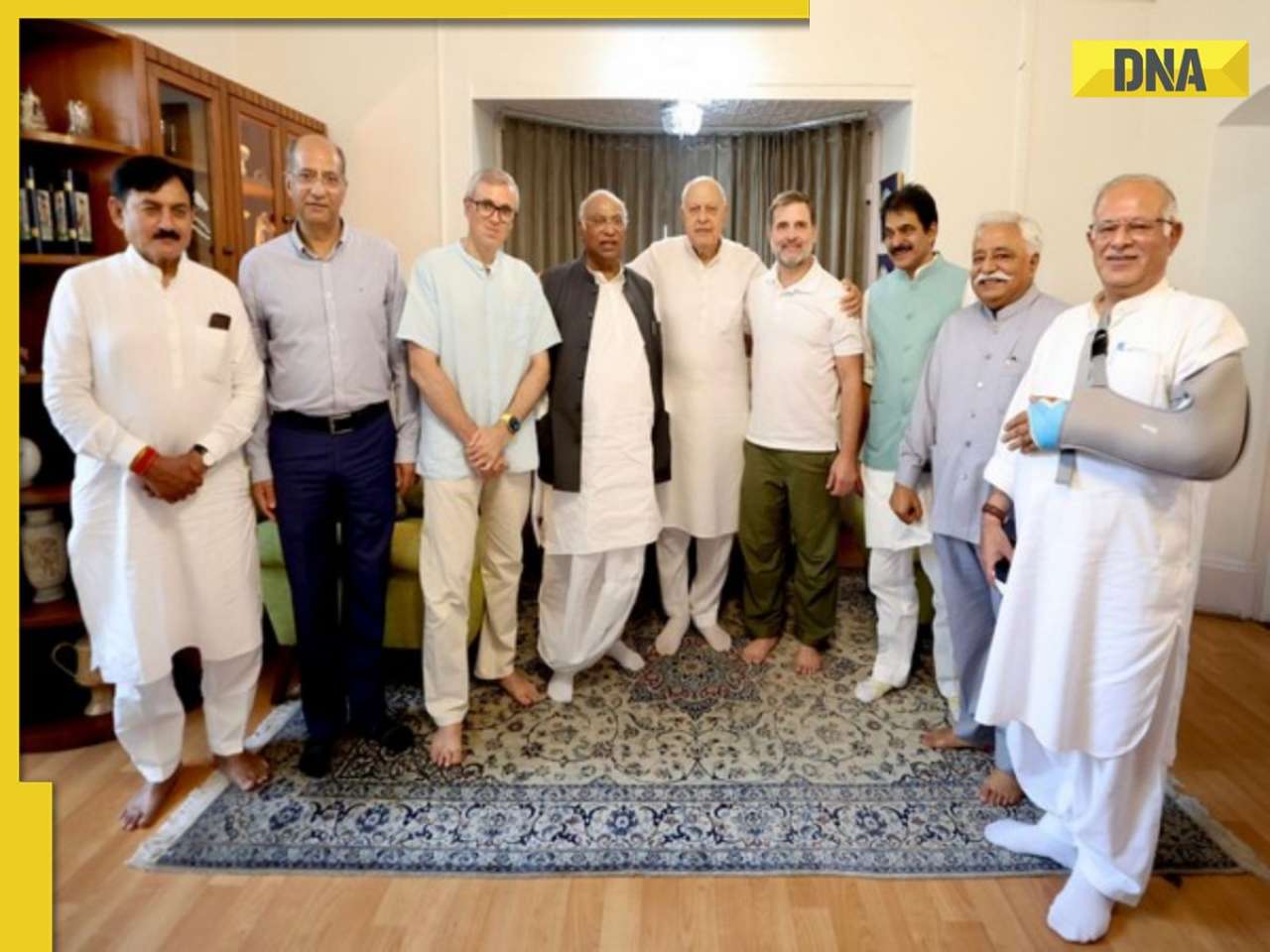
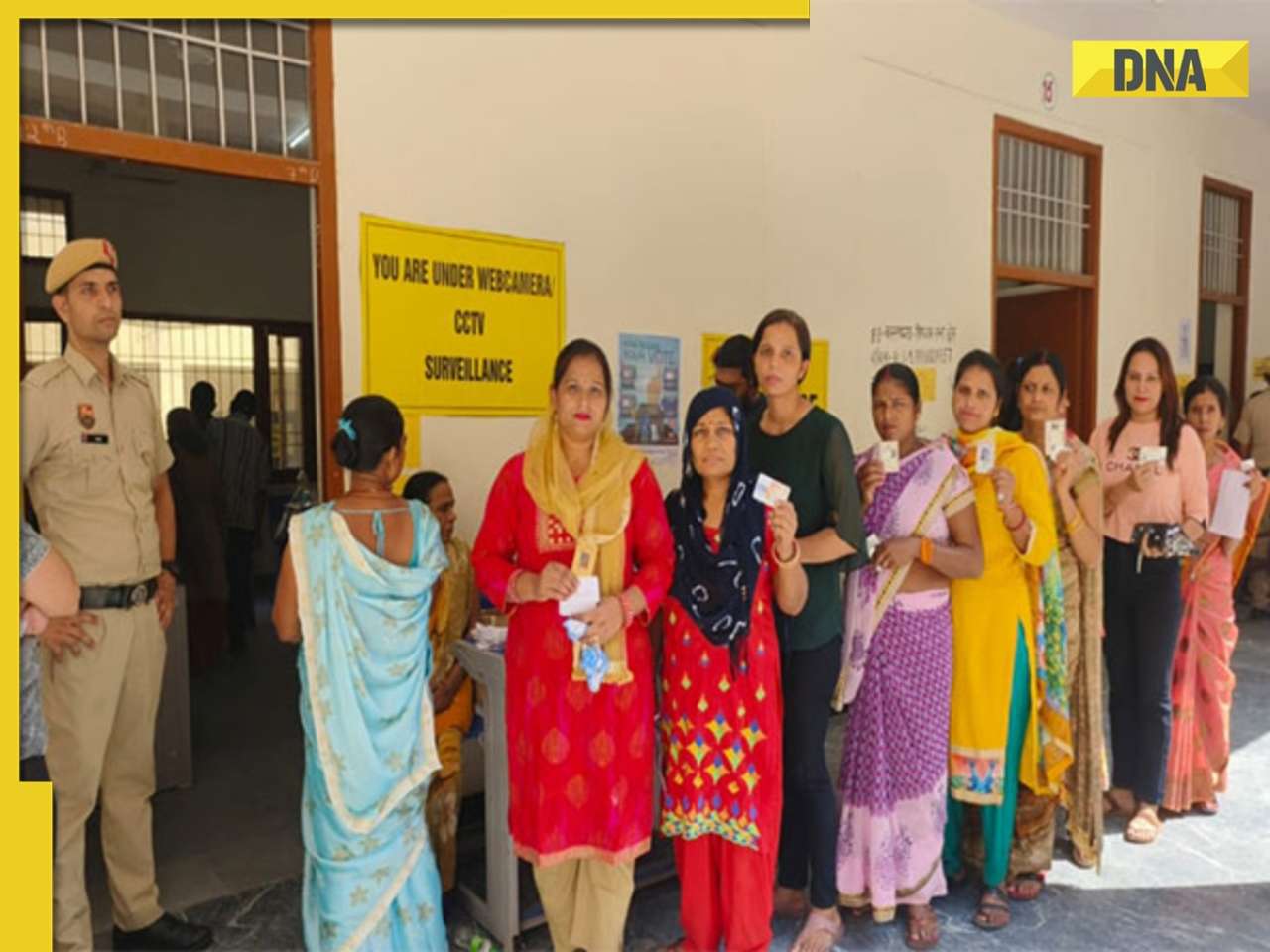


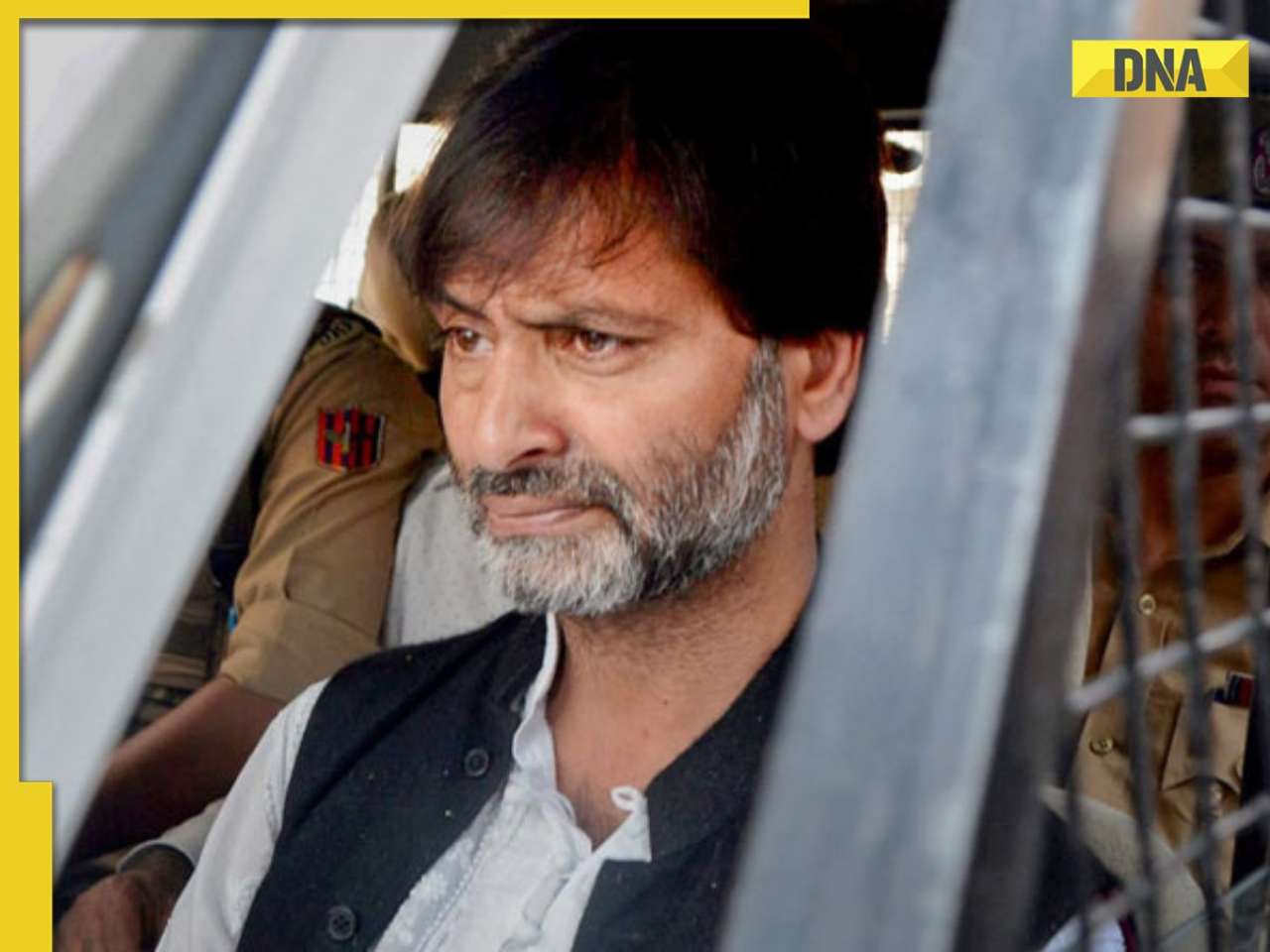

)
)
)
)
)
)
)
)
)
)
)
)
)
)
)





)
)
)
)
)
)